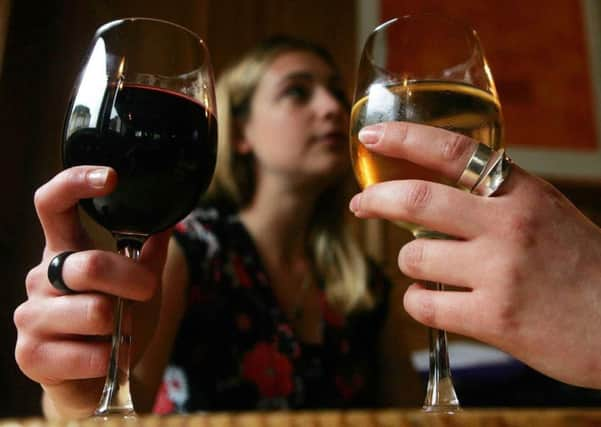Stephen Jardine: Rethink over rates is a reprieve, not a rescue


It’s not often the hospitality sector raise a glass to a politician. Usually they are the people who put a penny on a pint and endlessly look for new ways to regulate and restrict the industry. However this week Scotland’s Finance Minister was the toast of the pub, restaurant and hotel world after he announced a 12.5 per cent cap on business rate rises for hospitality companies.
In the first revaluation in seven years, the Government raised the payment threshold while reducing the rate poundage each business pays. That has taken thousands of firms out of the system but left others facing huge increases based on reassessments of their rateable value.
Advertisement
Hide AdAdvertisement
Hide AdOne Edinburgh bar and restaurant owner reportedly faced a rates increase from £7,350 to more than £40,000 next year while the owner of the Eat on the Green restaurant near Aberdeen saw his business rates bill rise by 150 per cent. Craig Wilson calculated the increase was the equivalent of upping the cost of a four-course meal in his restaurant from £49 to £150. No business can get away with that but the expectation was that the industry would just suck up the rates rise and shut up. It didn’t work out that way.
Instead it proved to be the final straw for an industry that has suffered in recent years. From the smoking ban to rising costs, from the minimum wage to the uncertainty surrounding Brexit and the ongoing burden of one of the highest hospitality VAT rates in Europe, running a pub, restaurant or hotel has never been harder.
The business rate rise pushed some to say, enough is enough.
Aberdeen hotelier Stewart Spence led the rebellion, refusing to pay his 25% increase and calling for a nationwide boycott and a complete rethink of how the rates are calculated.
Complaints have been loud in the north east with businesses claiming the rises take no account of the local slump in the economy caused by problems in the oil industry.
From 1 April the annual rateable value of the Banff Springs Hotel in Moray was due to rise from £92,000 to an incredible £197,000. Owner Charles Milne claimed the increase threatened not only his business but also the future of the entire hospitality industry.
“What planet does the person implementing these charges live on ?. It is certainly not Scotland as we are all canny enough to understand that this is a disaster in the making”, he warned.
After some intensive lobbying by the industry, the Scottish Government has listened and relented. The Finance Minister says the relief he has introduced will benefit about 8,500 pubs, cafes, restaurants and hotels across Scotland. Specific measures have also been introduced to help businesses in the north east.
Advertisement
Hide AdAdvertisement
Hide AdThe fight against the increases was led by the Scottish Tourism Alliance, the British Hospitality Association and the Scottish Licensed Trade Association and together they welcomed the cap calling it “hugely encouraging news” that would give confidence to the tourism industry.
However that could be shortlived. The relief is only funded for a year so for worst affected businesses it is a reprieve rather than rescue. In that breathing space, many will be queuing up to use the free appeal process to have their cases reexamined.
There is no such thing as a perfect system but there are worse taxes than one based around land value which produces revenue without distorting supply. What’s concerning here is not the tax itself but the fact that draconian increases got so far in the first place.
Politicians need to understand no business can cope with an instant 150 per cent rise in a cost. The Scottish Government has listened and acted and deserves praise for that, but a better understanding of the pressures and difficulties of running a hospitality business in 2017 will help avoid more pitfalls like this in the future.